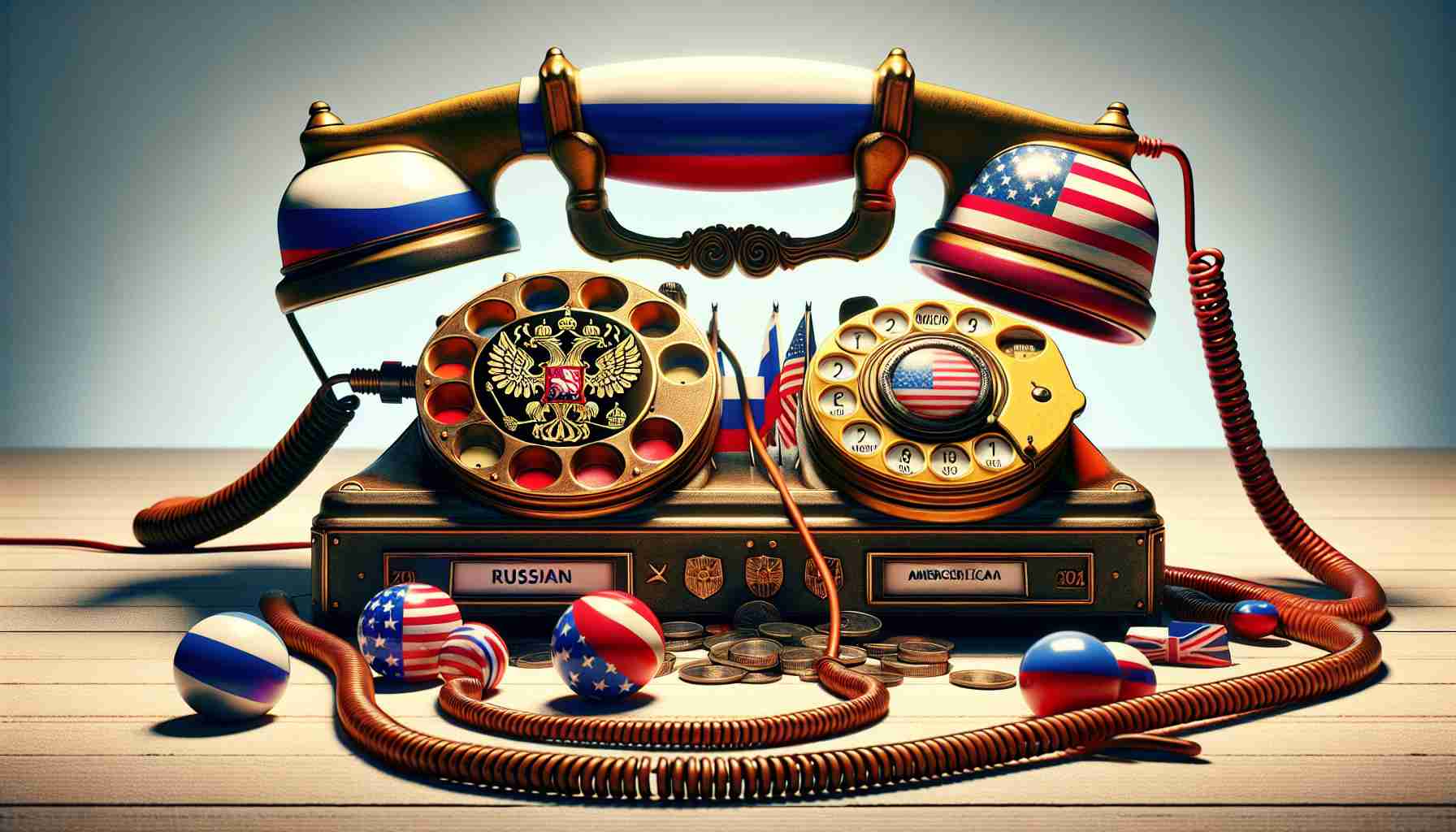- President Trump and President Putin’s phone call could reshape Europe’s geopolitical landscape by discussing Ukraine’s future without NATO or EU input.
- Putin aims to expand Russia’s influence through strategic diplomacy following the 2022 invasion of Ukraine.
- The timing of the call aligned with the U.S. defense secretary’s announcement against Ukraine’s NATO ambitions and Tulsi Gabbard’s confirmation as director of national intelligence.
- Putin’s approach is a strategic charm offensive towards Trump, seeking an American alliance to secure a favorable outcome in Ukraine.
- The situation represents a potential shift in global influence, as Putin hopes to redefine alliances and borders through diplomatic maneuvering.
On a fateful Wednesday, a phone call crackled through the channels of power, one that held the potential to reshape Europe’s future. In a move that sent ripples through the geopolitical landscape, President Trump and President Vladimir V. Putin spoke, hinting at negotiations that bypass traditional diplomatic protocols.
This conversation painted a vivid picture of Putin’s strategic vision: a world where Russia and the United States, as powerhouses, carve out Ukraine’s destiny without the input of NATO or the European Union. Despite the faltering steps of his initial invasion in 2022, Putin sensed an opportunity to redraw Europe’s map, expanding Russia’s influence through sheer diplomatic maneuvering.
The timing was impeccable. On the same day, Trump’s defense secretary, Pete Hegseth, announced the U.S. stance against Ukraine’s NATO ambitions, and the Senate confirmed Tulsi Gabbard, known for her favorable views towards Russia, as director of national intelligence. These developments seemed to synchronize perfectly with Putin’s calculated charm offensive toward Trump.
Putin’s strategy unfolded like a chess master’s endgame, investing his efforts in courting Trump with the conviction that an American alliance could secure a favorable outcome for Russia in Ukraine. The Kremlin’s polished charm campaign appeared part of a broader tactic, a cerebral gamble where political seduction might yield tangible victories.
Amid the diplomatic chessboard, one thing remains clear: Putin is staking everything on this relationship, envisioning a future not defined by past errors but by a shrewd recalibration of global influence. The world watches, waiting to see if this seismic shift will indeed redraw borders and redefine alliances.
How a Phone Call Might Reshape Europe’s Geopolitical Landscape
How-To Steps & Life Hacks: Navigating Geopolitical Developments
1. Stay Informed: Use credible news sources and platforms, such as Reuters or the BBC, to track developments in international relations.
2. Analyze Multi-Angle Perspectives: Cross-reference news from different countries to understand various perspectives on geopolitical events.
3. Engage in Policy Discussions: Join forums or attend seminars where experts discuss international relations, providing deeper insights into ongoing issues.
4. Connect with Experts: Follow geopolitical analysts on social media for real-time insights and analyses.
Real-World Use Cases: Influence of Diplomacy
1. Policy Changes: Conversations like the one between Trump and Putin can directly influence national security policies and defense strategies in different countries.
2. Market Reactions: Geopolitical shifts often impact financial markets. Investors might see changes in stock prices and currency values based on perceived stability or threats.
3. International Alliances: Such discussions can lead to new alliances or the strain of existing ones, affecting military and economic partnerships worldwide.
Market Forecasts & Industry Trends: Geopolitical Impacts on Business
1. Energy Sector Volatility: As Russia is a major energy supplier, any geopolitical changes involving Russia can cause fluctuations in global oil and gas markets.
2. Defense Industry Growth: Heightened tensions often spur increased defense spending, benefiting companies in the aerospace and military technology sectors.
Features, Specs & Pricing: Diplomatic Channels
1. Backchannel Communications: Often informal, these discussions can bypass traditional diplomatic avenues, aiming for faster but more secretive agreement processes.
2. Official Diplomatic Talks: Time-consuming and heavily scrutinized, these interactions involve multiple stakeholders like NATO or the EU, which can delay resolutions.
Security & Sustainability: Risks and Preparations
Countries embroiled in such high-stakes diplomacy must balance national security with sustainable development goals, ensuring resources support long-term stability rather than short-term aggressiveness.
Insights & Predictions: The Future of European Borders
Experts speculate that continued strong bilateral relationships between leaders like Trump and Putin might lead to changes in European borders if diplomatic interventions succeed. However, the risks of new conflicts remain high if perceived inequities or betrayals arise.
Tutorials & Compatibility: Understanding International Relations
– Online Courses: Platforms like Coursera or edX offer courses on international relations, helping individuals understand the complexities of diplomatic negotiations.
– Book Recommendations: Titles like Henry Kissinger’s “World Order” provide comprehensive views of global politics and power dynamics.
Pros & Cons Overview: Bilateral Agreements Outside Traditional Diplomacy
Pros:
– Potential for rapid conflict resolution.
– More tailored agreements between fewer parties.
Cons:
– Often lacking in transparency and democratic oversight.
– Can lead to diminished roles for international organizations like NATO or the EU.
Conclusion: Actionable Recommendations
– Stay Educated: Regularly update your knowledge on geopolitical issues to remain informed about global power shifts.
– Diversify Investments: Given market volatility, diversifying your investment portfolio can be a prudent response to geopolitical uncertainties.
– Participate in Policy Advocacy: Engage with local representatives to express views on how international relationships are handled at a governmental level.
Enhance your understanding of international relations by exploring courses on platforms like Coursera or staying informed with reliable audio-visual content on BBC.
